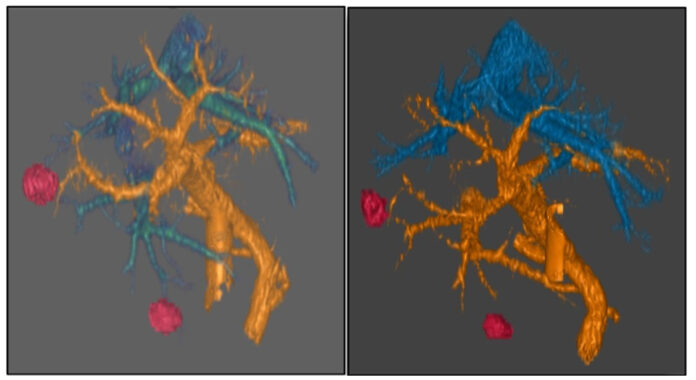
LOS ANGELES— A groundbreaking study from City of Hope suggests a new targeted approach could change the game for treating one of the deadliest cancers: pancreatic ductal adenocarcinoma (PDAC).
Researchers at City of Hope, a nationally recognized leader in cancer care, have unveiled promising early results from a novel treatment strategy that uses a genetic weakness in pancreatic cancer against itself. The study, published in Gastroenterology, tested an experimental pill, AOH1996, which was developed in-house by City of Hope scientists.
The drug targets transcription-replication conflicts (TRCs)—a cellular clash that causes stress during DNA replication. This stress is particularly pronounced in pancreatic cancers driven by KRAS gene mutations, which are present in roughly 95% of PDAC cases.
“Transcription-replication conflicts are an important vulnerability of pancreatic cancer,” said Dr. Mustafa Raoof, lead author of the study and assistant professor of surgery at City of Hope. “Our study is the first to confirm proof of concept that targeting this vulnerability can be an effective therapeutic strategy.”
Initial tests in mice and lab-grown organoids showed encouraging results, with tumor growth slowing and survival extending significantly. But perhaps most notably, two human patients with advanced, treatment-resistant pancreatic cancer experienced up to 49% reduction in their liver metastases after taking AOH1996 twice daily for two months.
The approach was particularly effective in cancer cells under high replication stress, enabling it to selectively attack tumor cells while sparing healthy tissue.
While researchers are optimistic, Dr. Raoof urged caution. “This is a very early-stage trial with only two patients. We need larger clinical and biomarker studies to fully validate our approach.”
AOH1996 was developed by City of Hope researcher Dr. Linda Malkas and is exclusively licensed to biotech company RLL, LLC. The trial (NCT05227326) represents a bold step forward in a field that has long struggled to find effective therapies for pancreatic cancer, which has a five-year survival rate under 10%.
The study was made possible in part by a historic $150 million gift to City of Hope from philanthropists A. Emmet Stephenson Jr. and Tessa Stephenson Brand. The donation aims to accelerate pancreatic cancer research and foster collaborations across institutions worldwide.
With breakthroughs like these, City of Hope continues its legacy of innovation, which includes contributions to the development of synthetic insulin and “smart” cancer drugs such as Herceptin and Rituxan.

